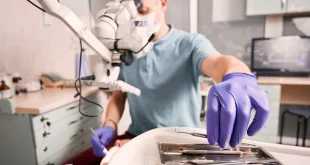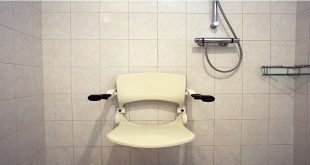Medical professionals require a comprehensive background check whether they work in hospitals, specialty clinics or in-home healthcare services. It includes checks that verify employment and education, multi-jurisdictional criminal records checks, national sex offender searches, social security number verification and motor vehicle reports. In addition, employers must ensure that their new hires are not barred from federally funded programs such as Medicare and Medicaid by searching the OIG exclusion list.
Education/Employment Verification
The healthcare industry is one of the fastest-growing industries. This rapid growth has a direct impact on the need for new employees. Healthcare companies must complete all steps of the employee background check process. It includes education verification checks. The work that these healthcare professionals do requires them to be a certain level of qualified and trustworthy. If a healthcare company hires someone who does not have the qualifications or has falsified their academic records, it could result in malpractice lawsuits and loss of trust among patients. It could be costly for a company, and in the worst-case scenario, it may lead to the loss of human life. It is, therefore, essential for healthcare companies to conduct thorough education verification checks on all candidates before they hire them.
There have been numerous cases of fraud in the field of healthcare. It is mostly due to the fake credentials of medical professionals. The background check services must supply the full names and birthdates of every college the candidate attended to verify the candidate’s educational credentials. It is also important to ensure that the candidate’s degrees are real and not obtained from diploma mills. Healthcare organizations must use the most dependable background checks when hiring doctors, nurses, therapists, pharmacists, etc. Their work will require them to handle confidential information, such as patient records. It is also crucial to perform background checks on healthcare workers before they begin employment.
Criminal History Check
Medical background checks for criminal activity are a common component of the employment process, but they are crucial for healthcare organizations. Because healthcare employees come into contact with patients directly, they must be trustworthy and reliable. A criminal history check can reveal a potential hire’s history of violent crimes, theft, fraud, drug offenses, elder or patient abuse, and more. When conducting a criminal background check, choosing a screening partner that uses a national search database that verifies each offense at the source rather than just returning a list of results is essential. It ensures that an applicant’s information is accurate and will stand up in court. Conducting a state and county search for the areas where an applicant has lived or worked is also crucial. Gaps in employment can indicate attempts to conceal a criminal record, licensing issues, or other concerns.
Another important piece of healthcare background verification is the sanctions check. Sanctions are imposed against individuals and entities by federal agencies for a variety of reasons, including fraudulent behavior, nonpayment of student loans, violating accepted medical procedures, and more. This search can help you avoid hiring a healthcare worker barred from participation in government-funded healthcare programs like Medicare and Medicaid, which could result in an expensive malpractice lawsuit for your firm.
Drug Screening
Drug screening is a crucial component of any employment background check. While many companies offer drug screens and tests, some methodological, cost, and accuracy differences are important to understand when selecting a solution. In the healthcare industry, consistent drug screening reassures patients that medical professionals fully possess their mental and physical capabilities when treating them. It also helps prevent workplace accidents or errors due to impaired judgment caused by illicit substance usage among healthcare staff. There are numerous ways to conduct a drug test, including urine, saliva, hair follicle, and breathalyzer. The most popular method is urine drug testing, which provides fast, consistent findings at a reasonable price. Saliva and hair follicle tests have a longer detection window, which makes them ideal for on-site or random screenings.
Breathalyzer tests are the most expensive, but they provide the most accurate and comprehensive results. These tests are typically conducted after an accident or when suspicion is high. Choosing the right solution depends on the type of drugs your company will be looking for, the frequency and duration of testing, and your budget. Before making a hiring decision based on an employee’s DUI record, it is critical to review job scope and responsibilities to determine whether the use of alcohol may impact their ability to perform their role effectively. Hiring decisions based on DUI records are also subject to rules enforced by the EEOC and federal agencies, so your company must follow best practices.
Sanctions Check
Sanction checks are a mandatory screening component for healthcare organizations that accept government payments, such as Medicare and Medicaid. Healthcare sanctions checks aim to identify those barred from employment in the healthcare sector due to convictions for fraud, waste, abuse, or other unethical actions. Regular sanction checks of contractors, workforce members, volunteers, and new hires ensure that a company follows federal laws regarding excluding individuals from employment in healthcare. Sanction screening involves searching domestic and international lists for a healthcare professional’s name to ensure they are not banned from a position in the industry. In addition to the OIG’s List of Excluded Individuals and Entities (LEIE), a robust healthcare sanctions check will search state-level Medicare and Medicaid exclusion lists and state medical boards for any suspensions or disciplinary actions. The results of these searches can reveal information such as who took the corrective action, how long the employment ban will last, and why the individual was placed on the list. Using a third-party healthcare background check provider for sanction checks and all of your healthcare employment screening needs can reduce costs, improve compliance with national and state regulations, and protect the patients you serve. A robust and regularly executed healthcare sanction check is a crucial part of your background screening program that can save you from monetary fines or lawsuits if you employ individuals who are banned from working in the industry.
Feel free to read more: ยาต้าน HIV
 Isaiminia World Breaking News & Top Stories
Isaiminia World Breaking News & Top Stories




